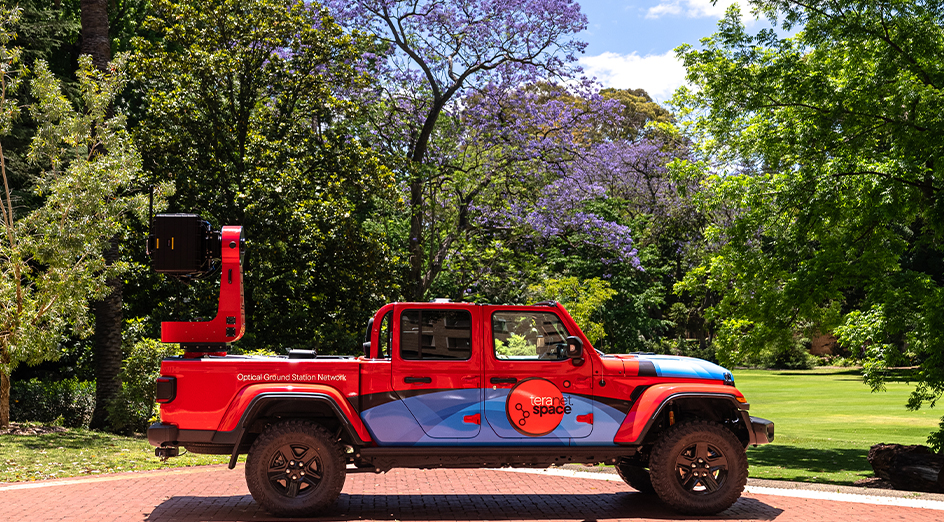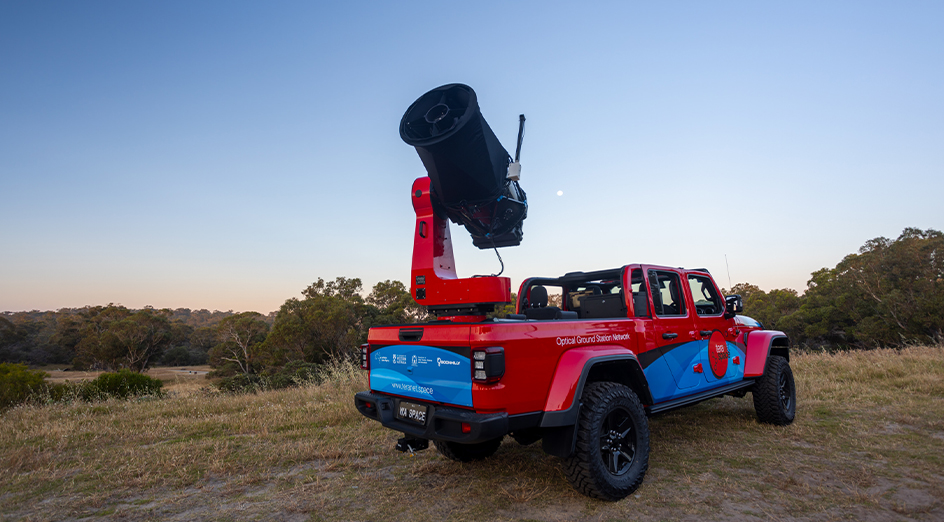The University of Western Australia will unveil its hi-tech and fully kitted-out TeraNet Jeep at today’s high profile Indo-Pacific Space and Earth Conference in Perth.
The innovative vehicle, equipped with cutting-edge laser communication technology, marks a significant milestone in the TeraNet project aimed at revolutionising space communications.
TeraNet, a network of optical ground stations, utilises lasers to transmit data between space and Earth at speeds up to a thousand times faster than traditional technologies.
Recently, the TeraNet team, led by Associate Professor Sascha Schediwy from the International Centre for Radio Astronomy Research (ICRAR) at UWA, successfully captured laser signals from the University of Stuttgart’s Flying Laptop satellite.
The signals were detected using two ground stations, including the mobile Jeep station.

“Launching the TeraNet Jeep with its full capabilities is a critical step in establishing a next-generation space communications network across Western Australia,” Associate Professor Schediwy said.
“This technology will not only enhance data transfer for Earth observation satellites but also secure military communication networks and support remote operations in sectors such as autonomous mining and national disaster management.”
Associate Professor Schediwy said laser communications faced challenges such as vulnerability to weather conditions such as clouds and rain.
“To mitigate this, the TeraNet network includes three ground stations spread across Western Australia so that if one station experiences bad weather, the satellite can transmit data to another station under clear skies,” he said.

“The mobile Jeep station can be rapidly deployed to areas requiring ultra-fast communications, especially in remote locations or during natural disasters.”
Supported by $6.5 million in funding from the Federal and State governments and UWA, the TeraNet project is part of the Australian Space Agency’s Moon to Mars Demonstrator mission grants program.
“By establishing this network, Australia positions itself as a key player in global communication infrastructure, capable of meeting increasing data transfer demands from space,” Associate Professor Schediwy said.







